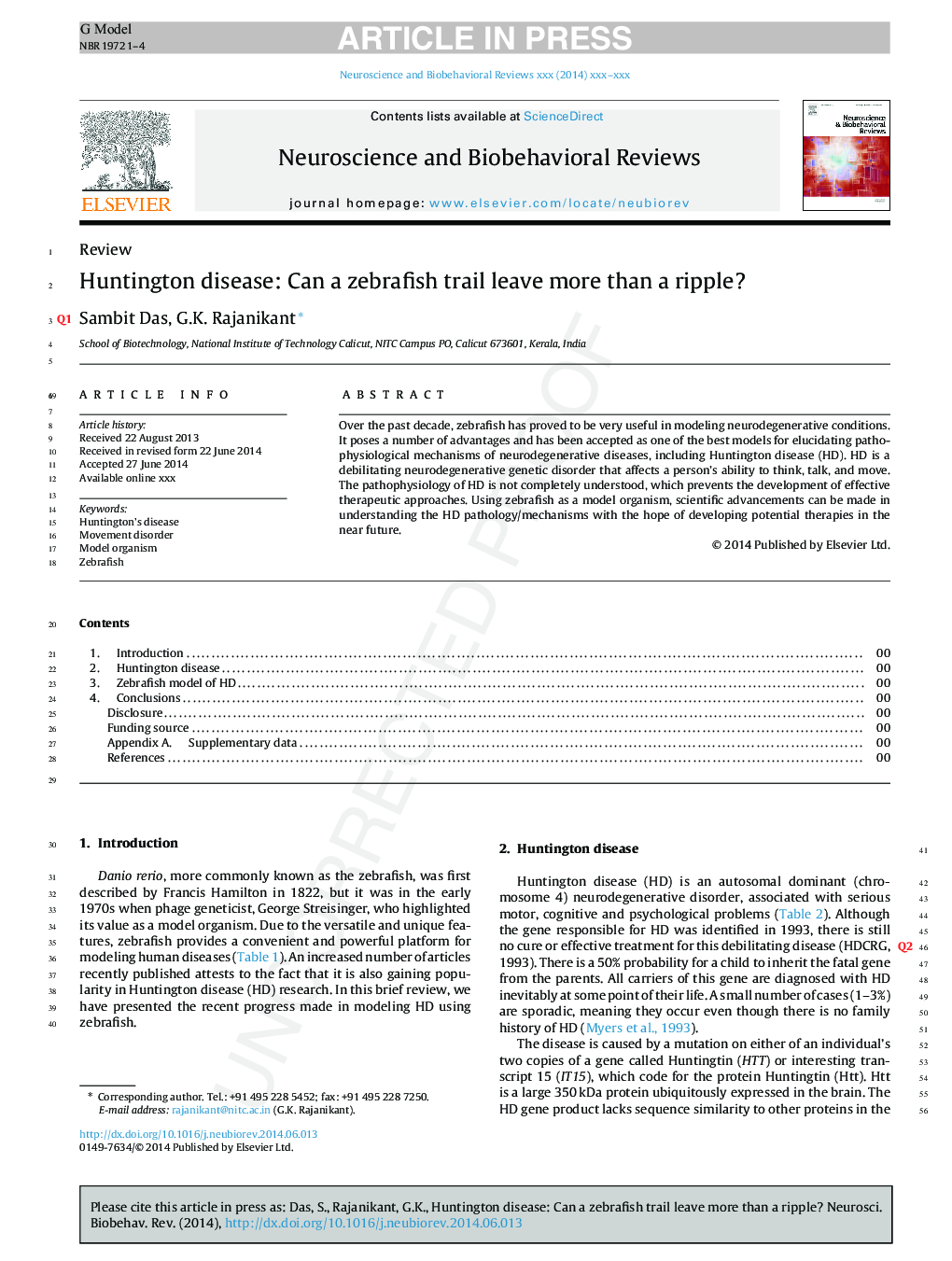| Article ID | Journal | Published Year | Pages | File Type |
|---|---|---|---|---|
| 7304025 | Neuroscience & Biobehavioral Reviews | 2014 | 4 Pages |
Abstract
Over the past decade, zebrafish has proved to be very useful in modeling neurodegenerative conditions. It poses a number of advantages and has been accepted as one of the best models for elucidating pathophysiological mechanisms of neurodegenerative diseases, including Huntington disease (HD). HD is a debilitating neurodegenerative genetic disorder that affects a person's ability to think, talk, and move. The pathophysiology of HD is not completely understood, which prevents the development of effective therapeutic approaches. Using zebrafish as a model organism, scientific advancements can be made in understanding the HD pathology/mechanisms with the hope of developing potential therapies in the near future.
Related Topics
Life Sciences
Neuroscience
Behavioral Neuroscience
Authors
Sambit Das, G.K. Rajanikant,
